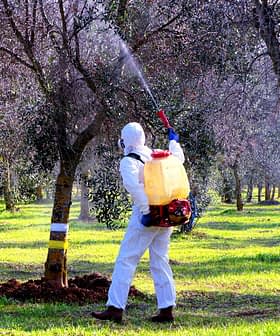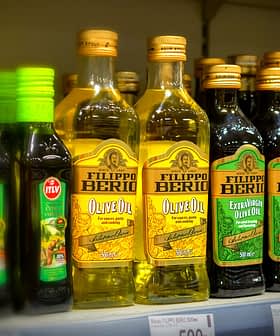Italian Producers Could Lose $200M if U.S. Tariffs Approved, Trade Group Warns
The Italian olive oil association warns that olive oil prices could double as a result of the tariffs, which have the potential to cut Italian oil exports to the U.S. by 50 percent.
The Italian Association of the Olive Oil Industry warns that American tariffs on European olive oil imports could cost Italian producers up to $200 million annually, potentially leading to a 50 percent drop in exports to the United States if the World Trade Organization approves the proposed tariffs. The U.S. Trade Representative is considering including olive oil and various types of olives in the list of products subject to increased duties in response to a dispute with the European Union over Airbus subsidies, which could have significant implications for Italy as one of the largest suppliers of olive oil to the U.S.
The Italian Association of the Olive Oil Industry (Assitol) has warned that producers in the country could lose up to $200 million a year if American tariffs on olive oil imports from the European Union are approved.
Anna Cane, Assitol’s president, said that exports to the United States could fall by as much as 50 percent if the World Trade Organization (WTO) approves the proposed tariffs. The governing body for international trade is set to make its decision later this summer on whether to approve some or all of the proposed tariffs.
With less European flow, which guarantees the United States 80 percent of packaged oil, space will be given to the products of our competitors.
“If the United States Trade Representative (USTR) office acted in accordance with these first indications, imposing ad hoc taxes, the entire chain of supply would suffer serious damage,” Cane said.
“In fact, with a tax on 100 percent of the product, the price of extra virgin olive oil would [double], which would be unsustainable for the U.S. consumer and, therefore, induce buyers to look for olive oil elsewhere or identify alternative oils,” she added.
See Also:Olive Oil Trade NewsThe USTR kept olive oil on an updated list of punitive tariffs it plans to impose on the European Union in relation to a dispute over the trading bloc’s subsidies for Airbus. Also included on the updated list were several types of pitted, non-pitted and stuffed green olives.
“The U.S. Trade Representative is considering the additional list of products… for inclusion on a final list of products to be subject to increased duties in connection with the enforcement of U.S. rights in the WTO dispute against the European Union,” the USTR said.
While olive oil was also included on the previous list, the four types of table olives had not been.
Italy is one of the largest suppliers of olive oil to the United States. According to Assitol, Italy exported 94,000 tons of olive oil to the U.S. in 2018, which represented 31 percent of America’s total olive oil imports and more than 50 percent of Italy’s total olive oil exports.
Cane had been hoping that olive oil would not be included on the updated list as a result of American dependence on imported oil. The U.S. imported more than 95 percent of the olive oil that was consumed in the 2018/19 harvest year. Overall, about 65 percent of American olive oil imports come from the European Union.
The North American Olive Oil Association, of which Assitol is an associate member, began circulating a petition to remove olive oil from the list in May but was unsuccessful in doing so.
Cane worries that if the tariffs are approved, American consumers will turn to North African and South American olive oil producers to fill the void.
“A good part of the bottled extra virgin olive oil in U.S. supermarkets is imported from Italy,” Cane said. “With less European flow, which guarantees the United States 80 percent of packaged oil, space will be given to the products of our competitors, particularly among our competitors in North Africa, such as Tunisia and Morocco.”
“Even assuming that, later, the duties are canceled, it will be very difficult to regain the lost market,” she added.
Lost market space is especially concerning for Italy, which sold more than 50 percent of its olive oil exports to the United States last year. In comparison, Spain sold only about one-third of its olive oil exports to the U.S.
Until the WTO makes its decision on whether or not to authorize American tariffs on the list of E.U. goods, there is not much that Italian producers can do.
Assitol has formally written to Fedolive, the European federation of olive oil producers, about the situation, but it is unclear what exactly the pan-European olive oil group will be able to do to mitigate the damage either.
“What is needed is a serious position taken by Italy, to avoid the possible effects of duties, preventing its entry into force,” Cane said.









